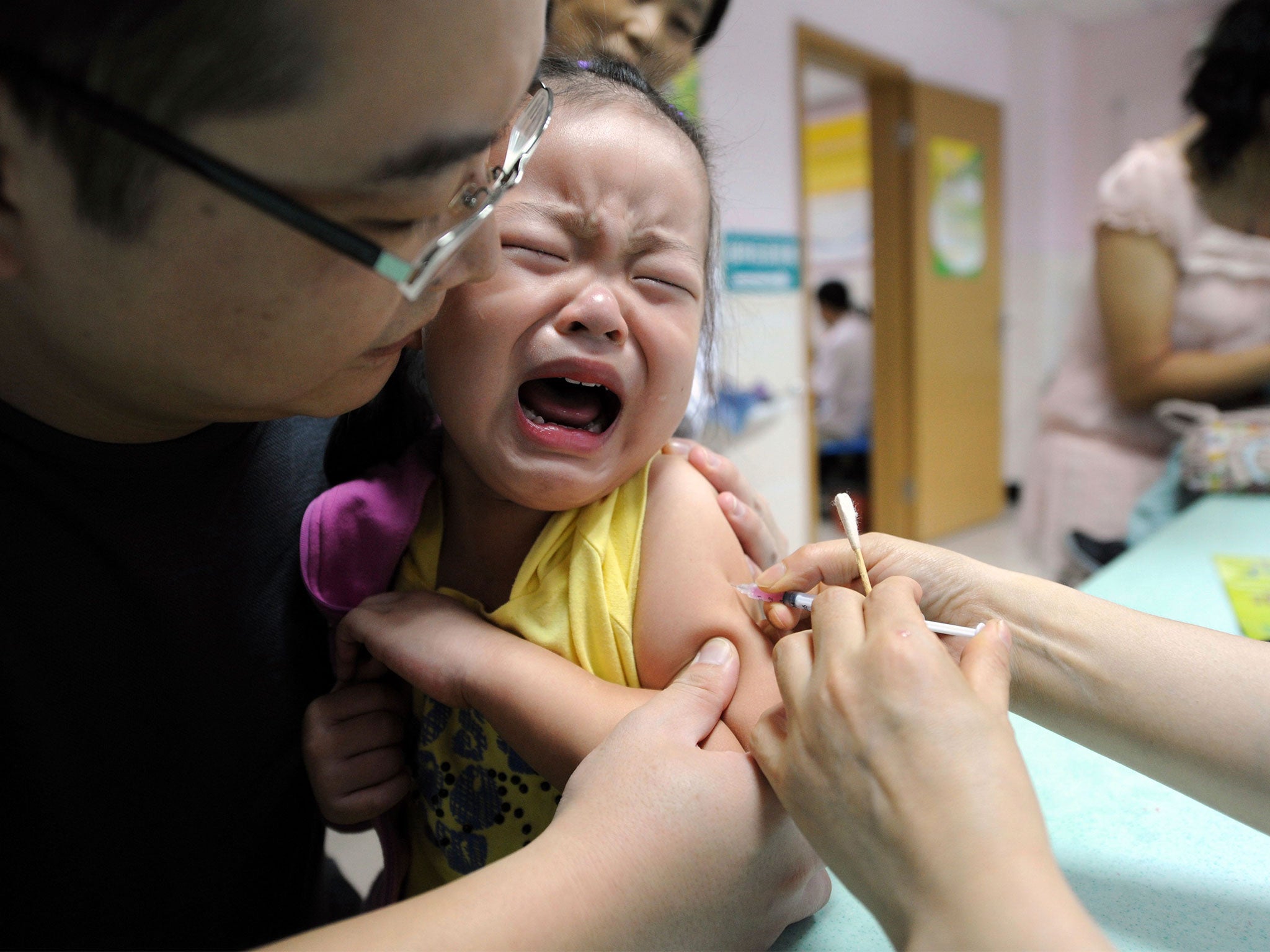Dangerous anti-vaccination myths 'breeding' on social media, report warns
Social media utilised more prominently by those looking to spread 'fake news' about vaccinations and parents are particularly exposed, RSPH warns

Social media is acting as a "breeding ground" for false and harmful information about the safety of vaccines and fuelling parents' fears of side-effects, according to an expert report.
Groups looking to spread "misleading and dangerous information" about vaccines are more prominent on platforms like Facebook than in other media, the Royal Society for Public Health (RSPH) found.
With drops in some vaccinations seen in England last year, and a record-breaking measles outbreak that caused 913 infections and tens of thousands across Europe, it is calling for tech companies to clamp down on "fake news".
The report found that half of parents with children under said they had seen negative messages about vaccines on social media sites and called for giant tech companies to clamp down on "fake news".
The online environment and "social media in particular" are already influential in opinion on topics like vaccination, and this will only grow as the younger generations become parents, the "Moving the Needle" report said.
"We have found that the impact of social media is likely to be negative, it is a breeding ground for misleading information and negative messaging around vaccination."
The RSPH said tech giants like Facebook and Twitter should look at partnerships to signpost reliable health sources, and work to prioritise those in newsfeeds.
"Currently, on Facebook for example, suggested groups or pages are ordered by popularity rather than credibility of the information," the report said.
"Google already prioritises organisations such as the NHS or the British Medical Association, and this should be enforced across social media platforms."
Headlines in traditional media which inflate rare cases of vaccines harms were also noted as a factor. The MMR scandal at the turn of the 21st century was stoked by media reporting since-discredited claims the jab could cause autism, and shows the "substantial damage" fear can cause.
While vaccination rates have recovered, uptake of the first dose of the vaccine in England fell for the fourth year in a row in 2017/18 - back to levels last seen in 2012. There was also a drop in the cervical cancer-preventing HPV jab among year nine girls.
In 2017/18, coverage for the first dose of the vaccine was 91.2 per cent in England - a small drop from the previous year (91.6 per cent) and at a similar level to 2011/1230.
Preventing "fake news" about vaccination was backed by 82 per cent of 2,000 people surveyed for the report, with one in four saying they had come across it on social media.
The report found that among all age groups, a fear of side-effects was the number one reason why people failed to vaccinate themselves or their children.

But among all parents, 91 per cent agreed that vaccines were important for their children's health.
The report also said that vaccinations should be offered in a more diverse range of locations, including at high street pop-ups, gyms and workplaces.
Despite a "world leading" vaccination programme in the UK, Shirley Cramer, chief executive of the RSPH, said: "We should never be complacent."
"We have found worrying levels of exposure to negative messages about vaccinations on social media, and the spread of misinformation - if it impacts uptake of vaccines - could severely damage the public's health," she added.
Helen Donovan, professional lead for public health at the Royal College of Nursing, said: "Challenging misinformation is vital to reverse the decline in vaccination uptake and ensure people recognise the protection it offers.
"In 2017 Britain was declared free of endemic measles, with just 259 lab confirmed cases.
"But last year saw 913 confirmed cases of this potentially fatal yet entirely preventable disease, a three-fold increase. This has been exacerbated by myths propagated largely online."
Join our commenting forum
Join thought-provoking conversations, follow other Independent readers and see their replies
Comments
Bookmark popover
Removed from bookmarks